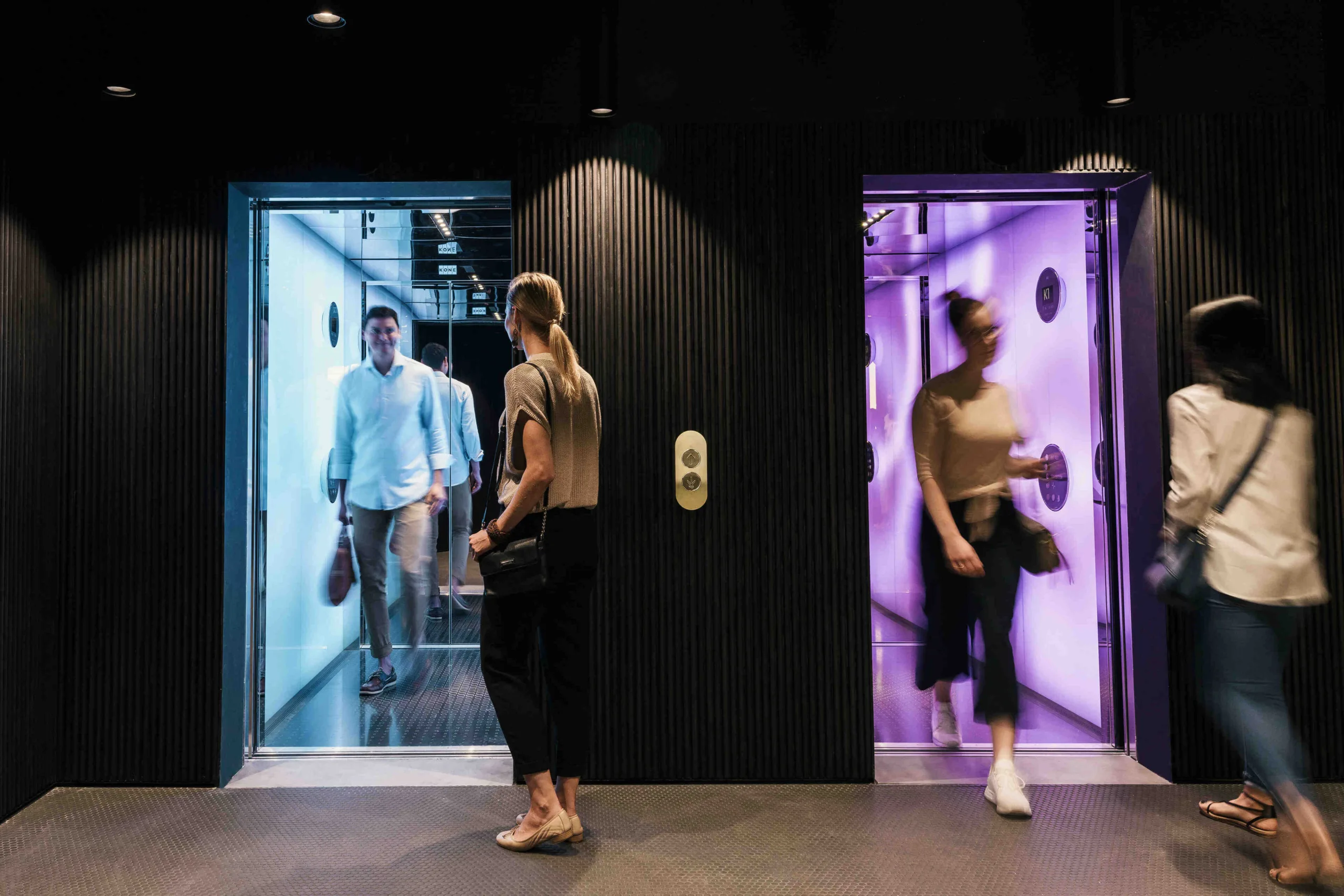Shute has been working with KONE for about 2 years. We sat down with Kristian Rode, CCO of Shute, to talk about their journey.
To help customers get the best out of their products, KONE monitors installed equipment in numerous ways, in order to keep track of the performance and condition. condition. This is the idea behind predictive maintenance: inspections and repairs can be planned ahead, in addition to regular maintenance, to prevent unnecessary stoppage and downtime.
At the end of 2019, Shute Sensing Solutions, a polymer optical fibre sensor system provider, teamed up with KONE, a global leader in the elevator and escalator industry. The goal: to co-create a predictive maintenance solution to prevent unscheduled downtime, particularly focused around component wear and failures.
Shute’s technology is extremely versatile: not only does their optical fibre solution monitor strain, humidity and temperature at specific points, but instead of traditional glass-based fibre, their solution is made out of a polymer.
“One of our biggest upsides for businesses is that they can save money with structural health monitoring,” says Kristian Rode, CCO of Shute.
FROM PROTOTYPE TO TESTING
After investigating their combined strengths and business needs, the two companies created a prototype for a structural health monitoring device. As Rode tells us, this prototype is now being tested in a controlled environment.
“We’re hopeful these tests will run smoothly so that we can produce more devices and we can fit them into real-life systems as well,” he says.
The small size of the fibre allows the sensor to be installed practically anywhere. When the sensor fibre is twice the thickness of human hair, it is perfect for hard to reach places, like elevator machinery. Being a polymer, one of the challenges is making it more heat resistant – Shute has made great progress from the initial temperature limit of 80 degrees celsius.
“We’re moving into about 200 degrees Celcius with new polymers and doing combinations of them,” Rode elaborates. “That has, of course, increased the range of where we can implement more sensing systems.”
THE BEGINNING OF A REALLY GOOD CO-CREATION JOURNEY
Rode says that the co-created solution they created with KONE is not the way they normally work with fibres. With the KONE team challenging Shute from the beginning, the solution they came up with is an entirely novel one. The original technology itself is based on low volume. Increasing the number of sensors raises the unit price – a factor that the Shute and KONE teams have been working to figure out together.
“That is, of course, always the balance: to find a price for the sensing system that outweighs the cost of the stoppage time of the machinery afterwards,” says Rode. “A solution that fits the business needs also should be able to scale up for future use, maybe globally.”
Working together has given the chance for the Shute team to think of new directions to develop the product. Coming up with alternative uses for their fibres, the team has also learned things they can use with their other customers in other industries.
“It’s been a really good journey for us,” Rode summarizes their work with the KONE team.
A WELL-SCOPED BUSINESS NEED DRIVES THE PROCESS
Shute and KONE signed an agreement after meeting in the Combient Foundry venture client cycle. Thinking back to the initial engagement, Rode recalls that joining was simple for their company. Furthermore, the cycle was structured as not to take up too much of the participants’ time.
“You didn’t have to put too much into it, to begin with,” he says. “As the partnership began to develop, only then did the amount of work increase. So if there wasn’t a match, you wouldn’t have used a lot of time as a startup.”
Time is always of the essence, especially for startups. With limited time and manpower, the choices of where to invest resources should be considered carefully. With Combient Foundry, Rode feels the investment has been a good one – both Shute and KONE have been cutting time from negotiations and development with a well-scoped business need driving them forward.
“Combient Foundry helped to facilitate at the beginning,” Rode says. “They had a foundation, cooperation, agreements and stuff like that, and also helped scope the tasks that we were going to work together on the feasibility of the partnership.”


